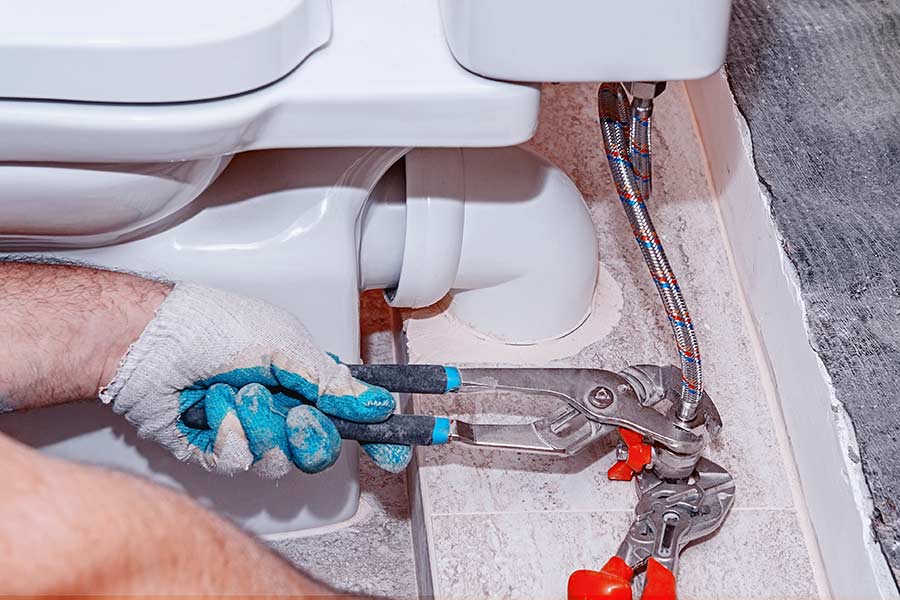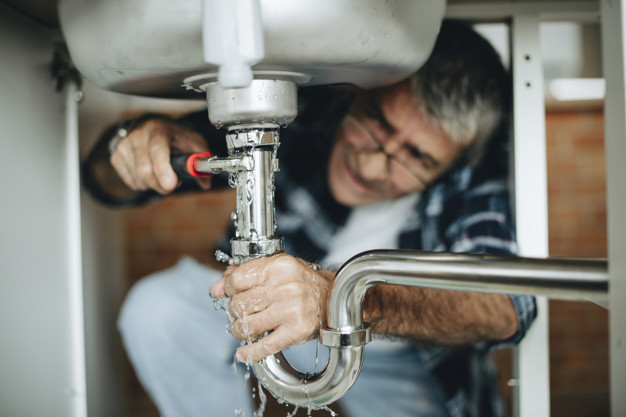The 5 Reiterative Water Leak Factors
The 5 Reiterative Water Leak Factors
Blog Article
Just how do you actually feel with regards to How to Find and Prevent Water Leaks in Your Home?

"Beware of little costs. A tiny leak will sink a wonderful ship." - Benjamin Franklin.
He couldn't have been a lot more best due to the fact that water leakages in our homes lead to a waste of sources, increasing our water bills. Although this increase could appear minimal at first, it can lead to considerable expenses that can damage your financial institution. Aside from a rise in expenses, water leaks also trigger unwanted natural development, structural damages, as well as also electrical risks.
Determining if you have a water leakage isn't always easy because of being unable to see most of the pipework in your house. If you have had an increase in your water expenses recently, noticed water stains on ceilings and walls, smelt lousy odor, etc. You may intend to consider asking for plumbing solutions to get it had a look at.
There are numerous sources of water leaks, and also we have assembled the common factors below. Examine to see if you have actually had associated concerns in your house lately.
Blocked drains
Food fragments, dirt, and also oil can trigger blocked drains pipes and obstruct the passage of water in and out of your sink. Increased stress within the gutters can create an overflow and end up breaking or breaking pipelines if undealt with. To avoid clogged drains pipes in your home, we suggest you to stay clear of pouring bits down the tubes and also normal cleaning of sinks.
High water stress
You observed your home water stress is greater than typical however after that, why should you care? It's out of your control.
It would be best if you cared because your ordinary water stress must be 60 Psi (per square inch) as well as although your residence's plumbing system is created to endure 80 Psi. An increase in water pressure can place a strain on your house pipelines and result in splits, or even worse, burst pipes. Obtain in touch with an expert concerning managing it if you ever before see that your house water stress is higher than common.
Deterioration
As your pipework gets older, it obtains weak and also much more vulnerable to rust after the constant passage of water with them, which can gnaw at pipelines and create splits. A noticeable indication of rust in your home plumbing system is staining as well as although this may be hard to detect due to the majority of pipelines hidden away. Once they are old to make sure a sound plumbing system, we recommend doing a constant examination every couple of years and also change pipelines
Deteriorated pipe joints
Pipe joints are the parts of our plumbing system where the pipes attach. They are the weakest factor of our plumbing system. Consequently, they are a lot more at risk to deterioration. It is necessary to keep in mind that even though pipes are developed to endure pressure and also last for a while, they weren't designed to last forever; for that reason, they would certainly wear away gradually. This degeneration could lead to splits in plumbing systems. An usual indication of harmed pipeline joints is excessive noise from taps.
Busted seals
Another root cause of water leakages in residences is damaged seals of home appliances that utilize water, e.g., a dish washer. When such devices are installed, seals are installed around water connectors for easy passage of water through the device. Thus, a damaged seal can create leakage of water when being used.
With little or no expertise of plumbing, comprehending your house's plumbing system adequate to fix some of these issues (without effect) can be a trouble. Get in touch with plumbing specialists in Pittsburgh, Providence, Rochester, and environ today, and they'll make those concerns vanish.
He could not have been more ideal because water leakages in our homes result in a waste of sources, increasing our water expenses. If you have had an increase in your water expenses recently, noticed water spots on wall surfaces and ceilings, smelt lousy smell, and so on. A rise in water pressure can put a stress on your residence pipelines and lead to cracks, or worse, burst pipes. One more reason of water leakages in residences is damaged seals of residence devices that make use of water, e.g., a dishwasher. When such appliances are installed, seals are installed around water adapters for very easy passage of water with the machine.
5 TIPS IN DETECTING A WATER LEAK IN YOUR HOUSE
Water leaks can be hard to find in your home, yet they can be so common. We rely on water every day in our home, which is why a leak can cause big problems. By detecting them early, you can save money and further damage, getting the problem fixed as soon as possible. Here are 5 tips to help you detect a water leak in your home, so you can contact a plumber straight away and get the issue sorted.
Check your water meter
Many people underestimate the value of the water meter in their home. It can be one of the best ways to tell if you have a leak early on, so you can get on top of it before issues start arising. Start by turning off all the water in your home: taps, washing machine, dishwasher, etc. Now take a look at the meter – if it’s still changing with everything turned off, it’s likely you have a fast-flowing leak that you need to get on top of straight away. If nothing changes, then leave your meter for an hour or two and come back to it. Did it change in this time? It’s likely you have a slower leak, which isn’t as urgent but still handy to get fixed so it doesn’t become a bigger problem.
Keep an eye on your bill
Another good way to detect a leak in your home is by keeping an eye on your water bill. It helps if you have a past bill from the same period of time. You can compare like for like and determine whether your water usage has increased significantly. If it has, there may be a leak in your system that you haven’t picked up before. A professional plumber can check through all of your pipes and determine where it is coming from.
Look for damage
If you have a leak inside your home, you will notice damage over time. Take a look at your showers and bathtubs and note whether any of the tiles surrounding the area seem to be discoloured or damaged in any way. There may be water stains, mould or peeling material that has resulted from a build up of moisture over time. Make sure you take a look under sinks at the back of cupboards that don’t get accessed regularly. This is where damage can go unnoticed and build up over periods of time.

I recently found that blog posting about Where to Find Water Leaks when doing a lookup on the search engines. Loved our posting? Please share it. Help others find it. Thanks a lot for your time invested reading it.
Prioritize your plumbing; call us. Report this page